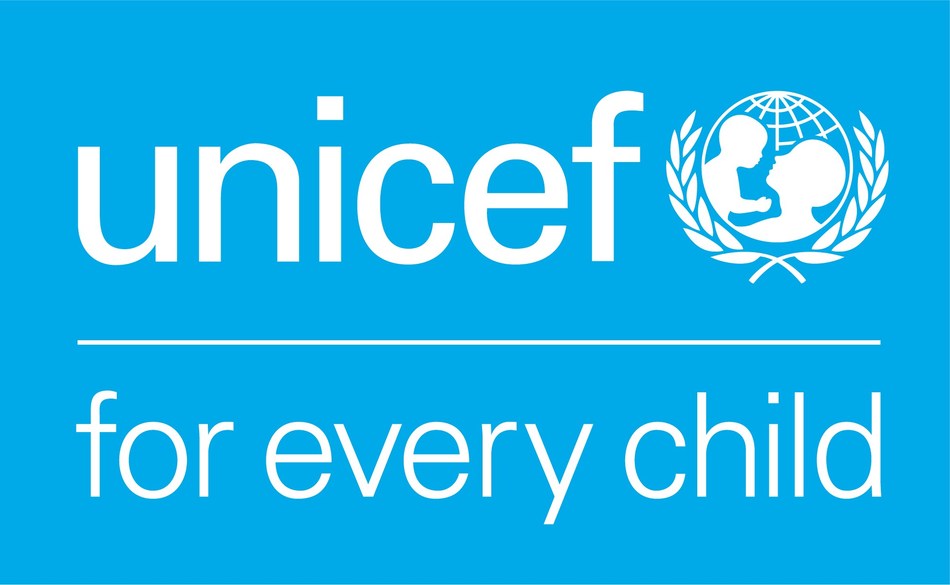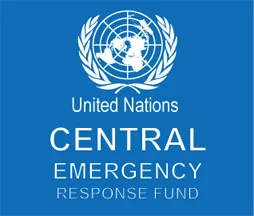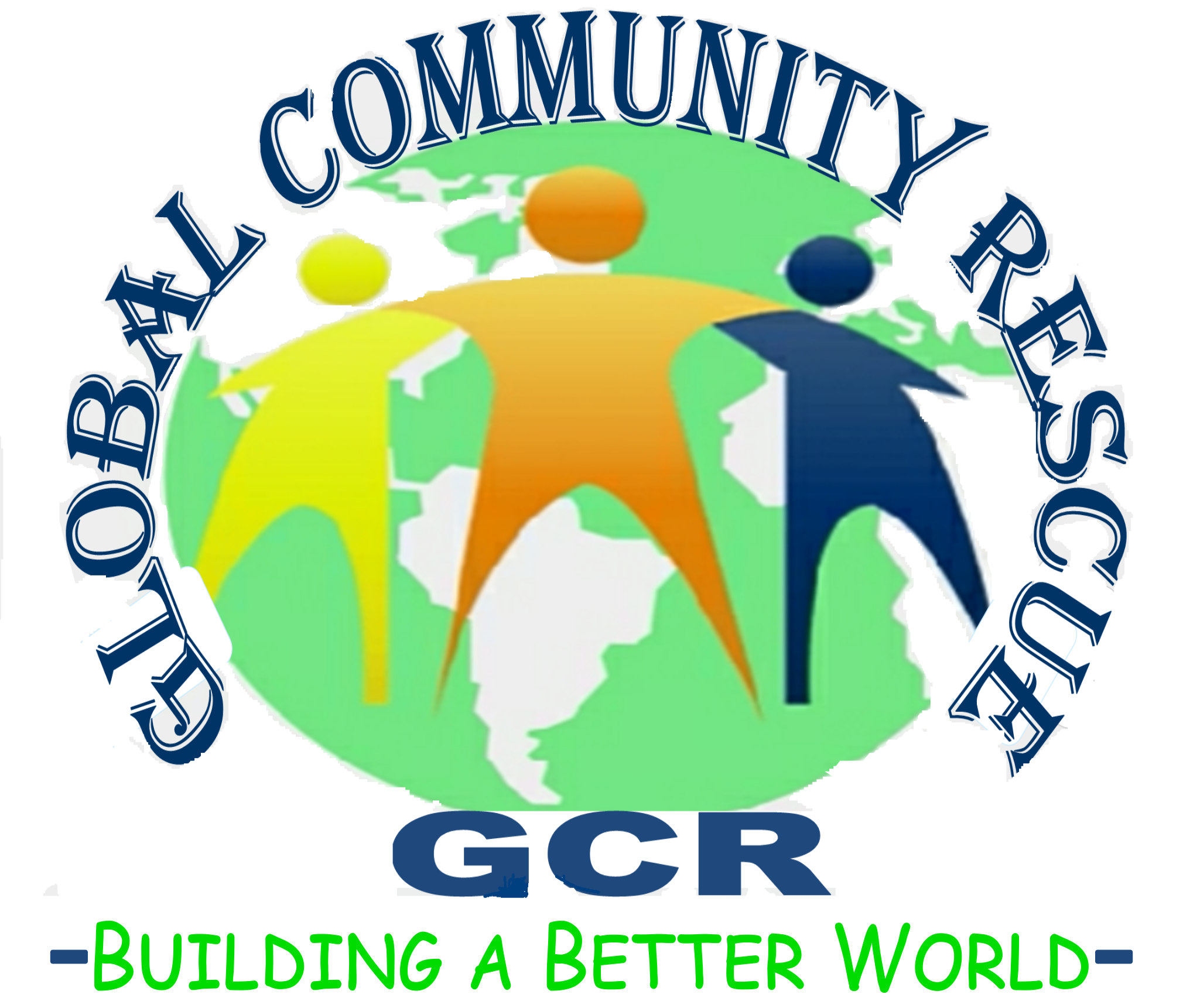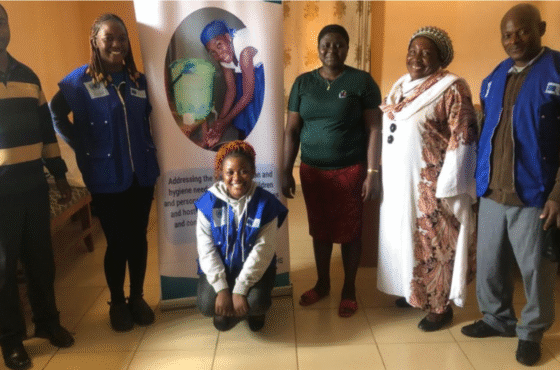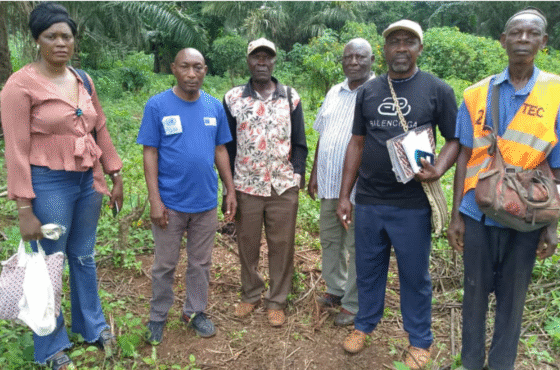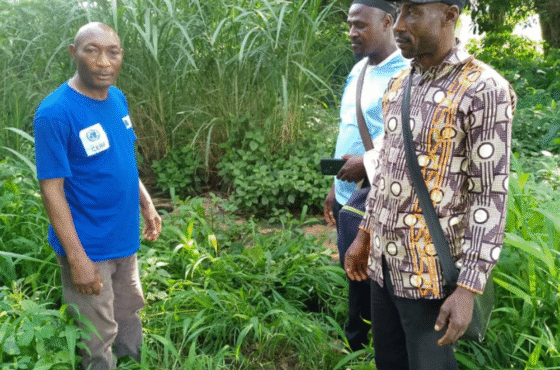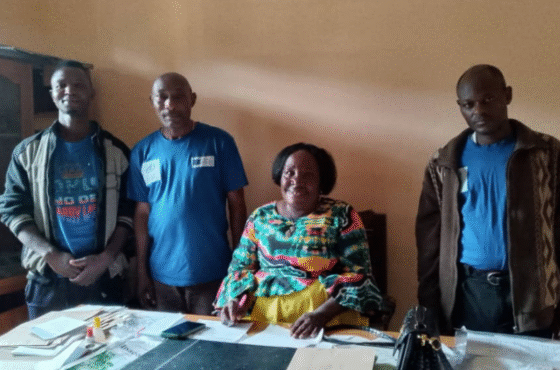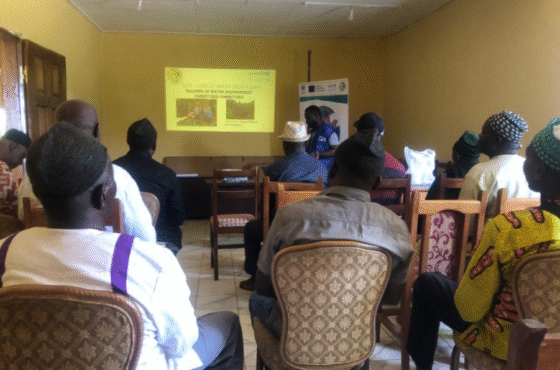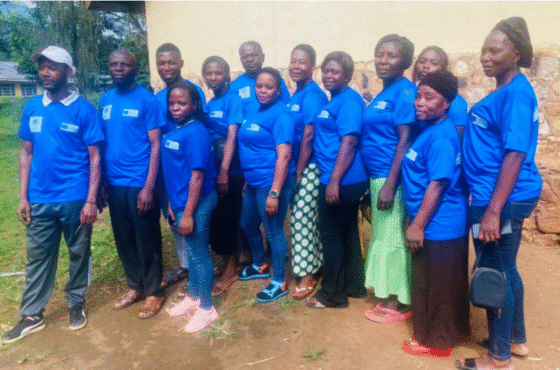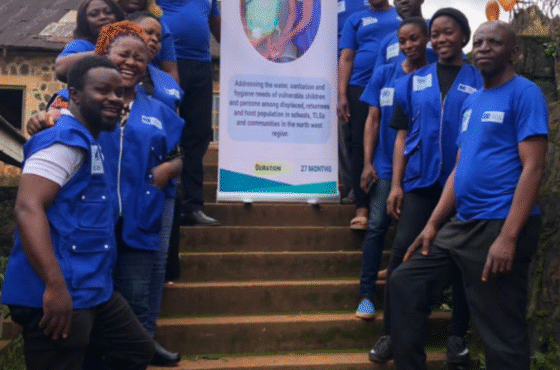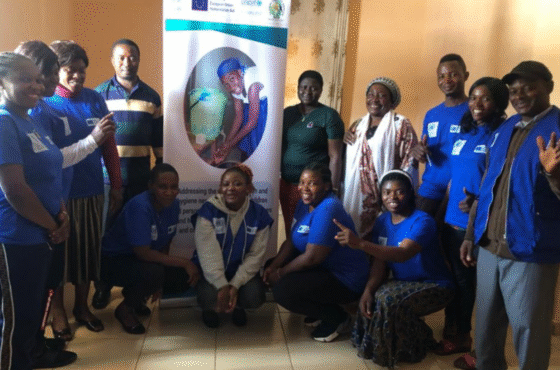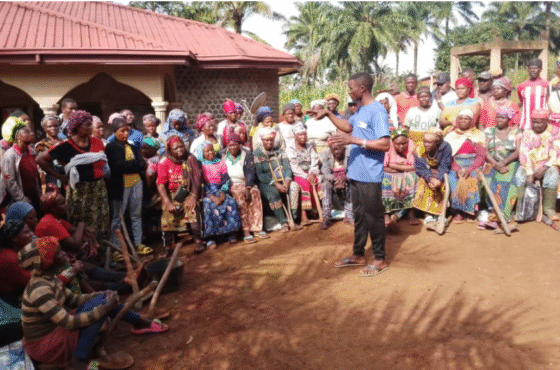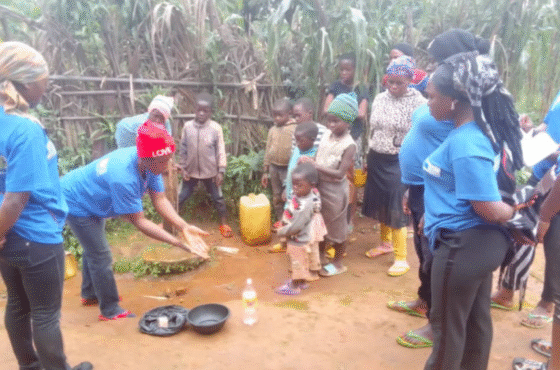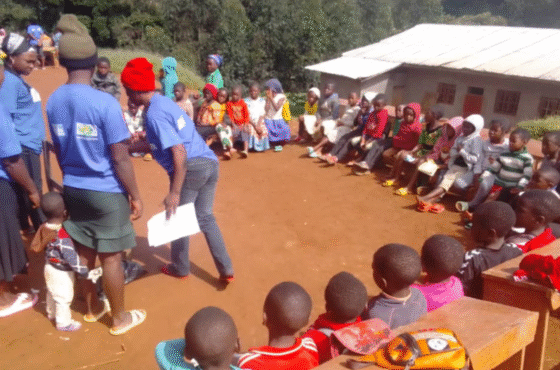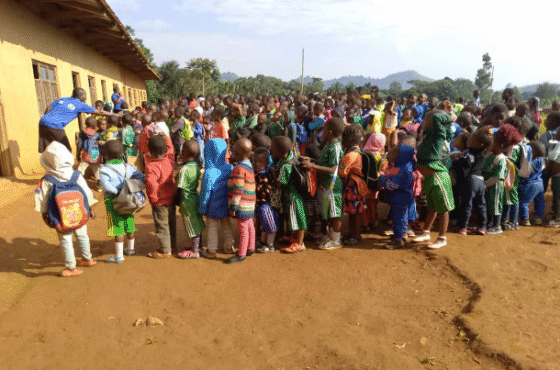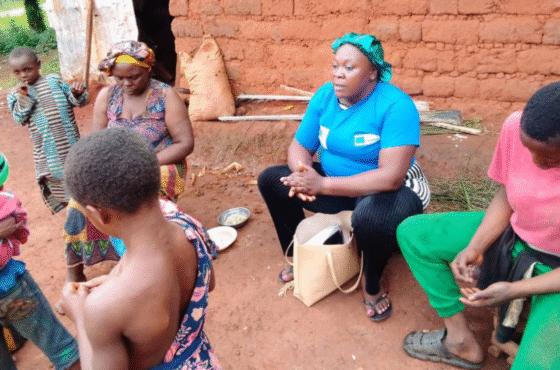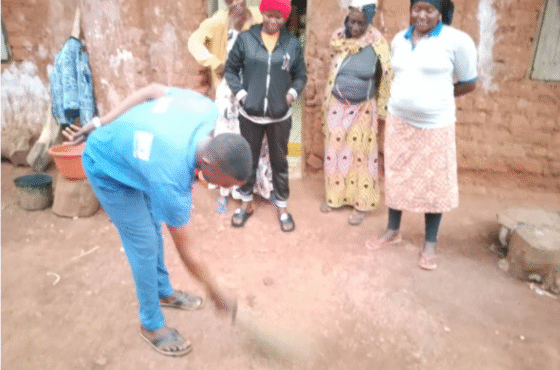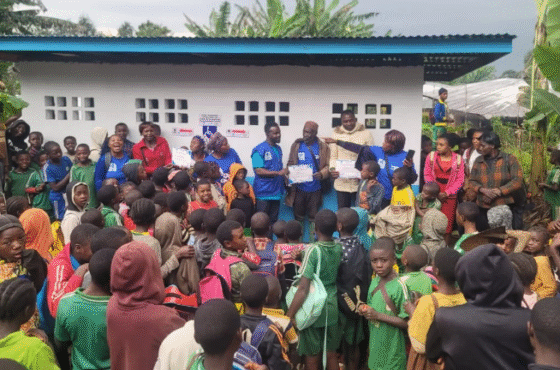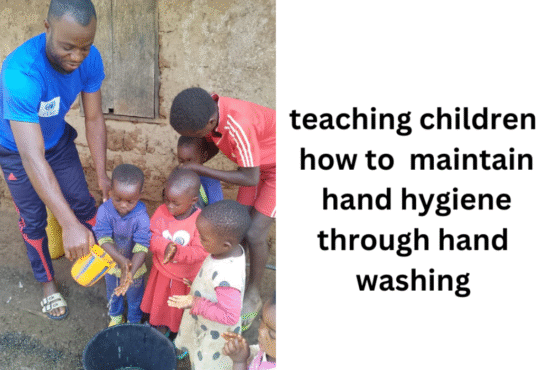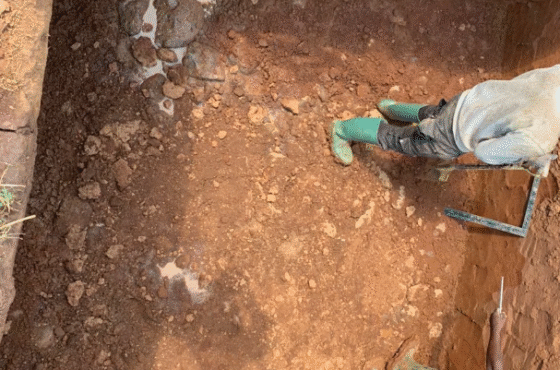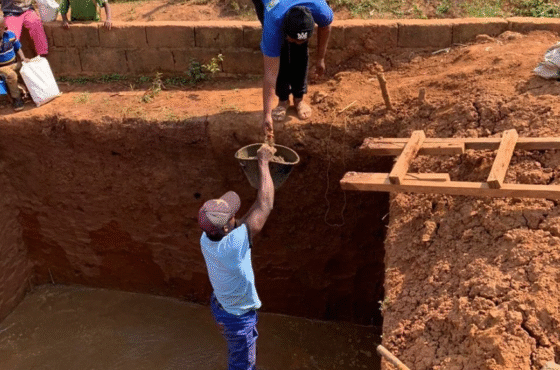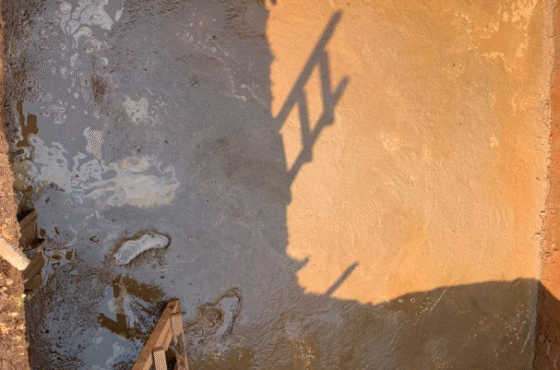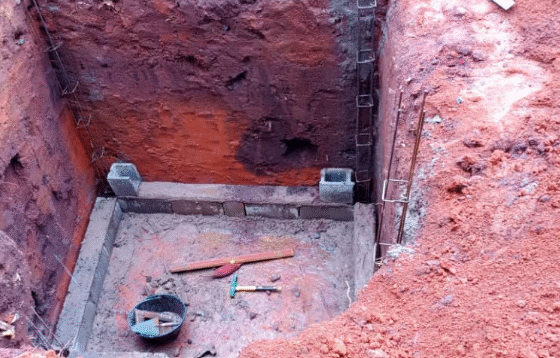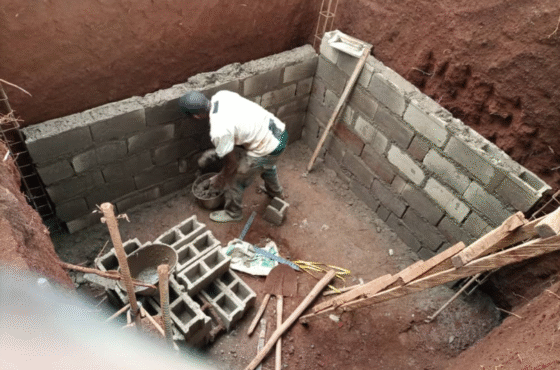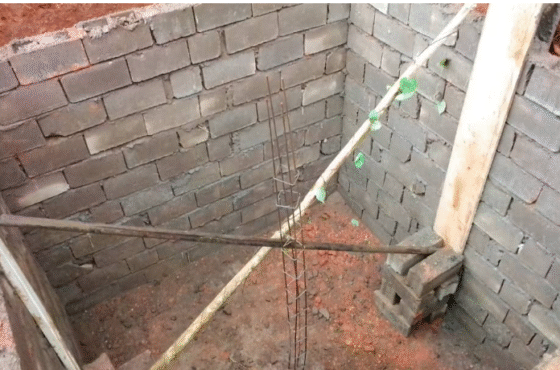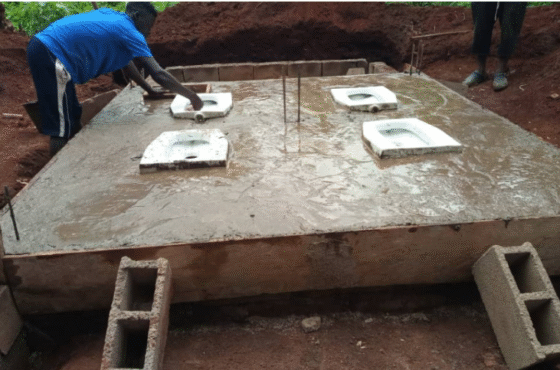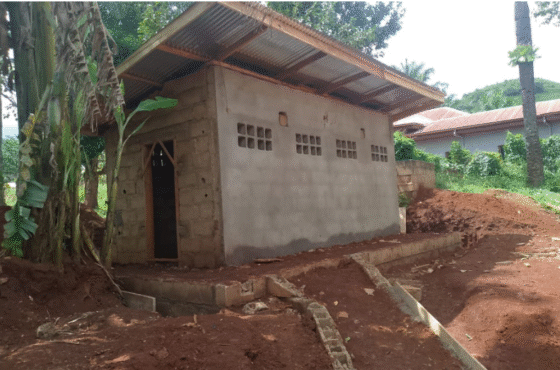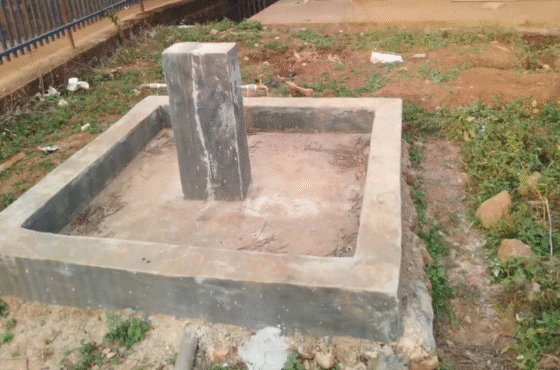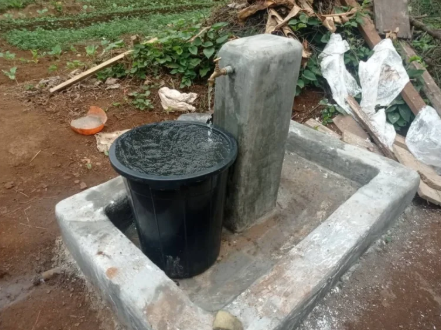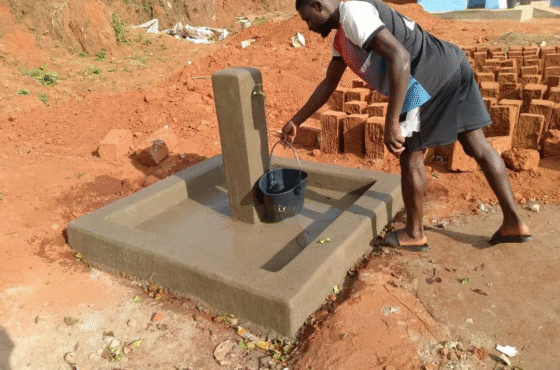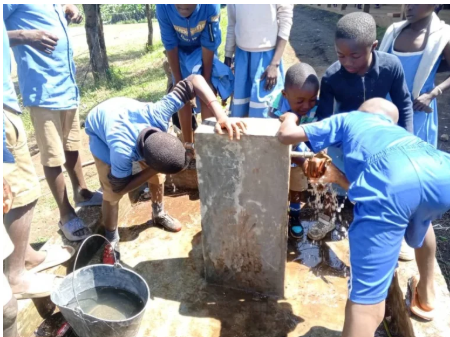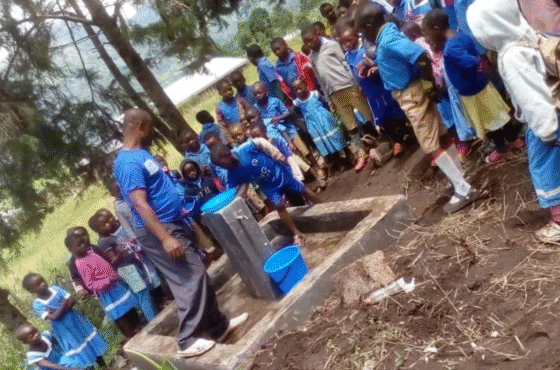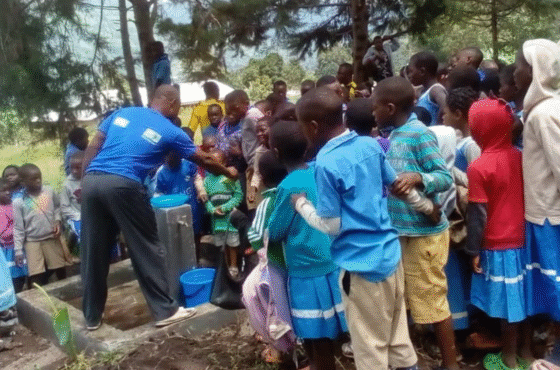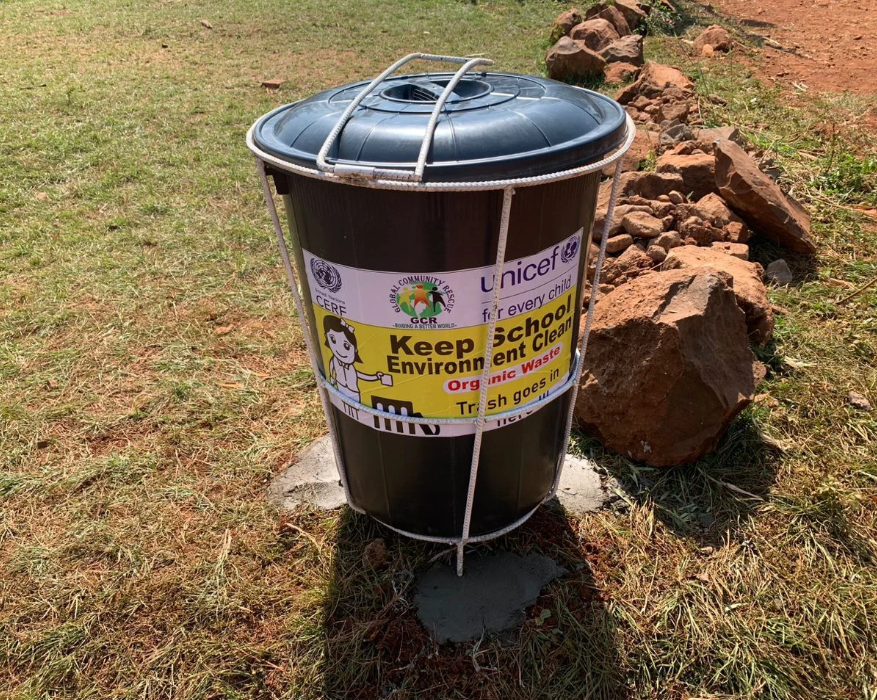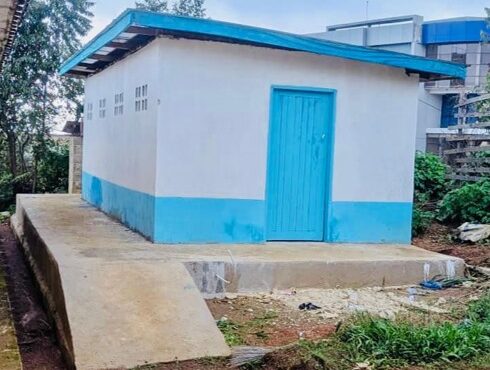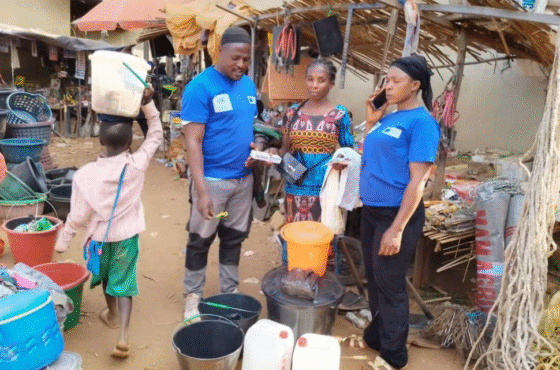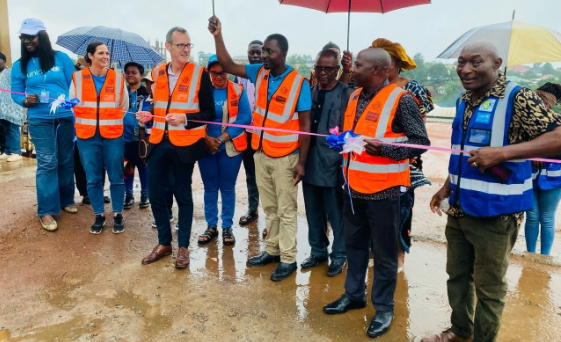CERF Project
- Home
- CERF Project
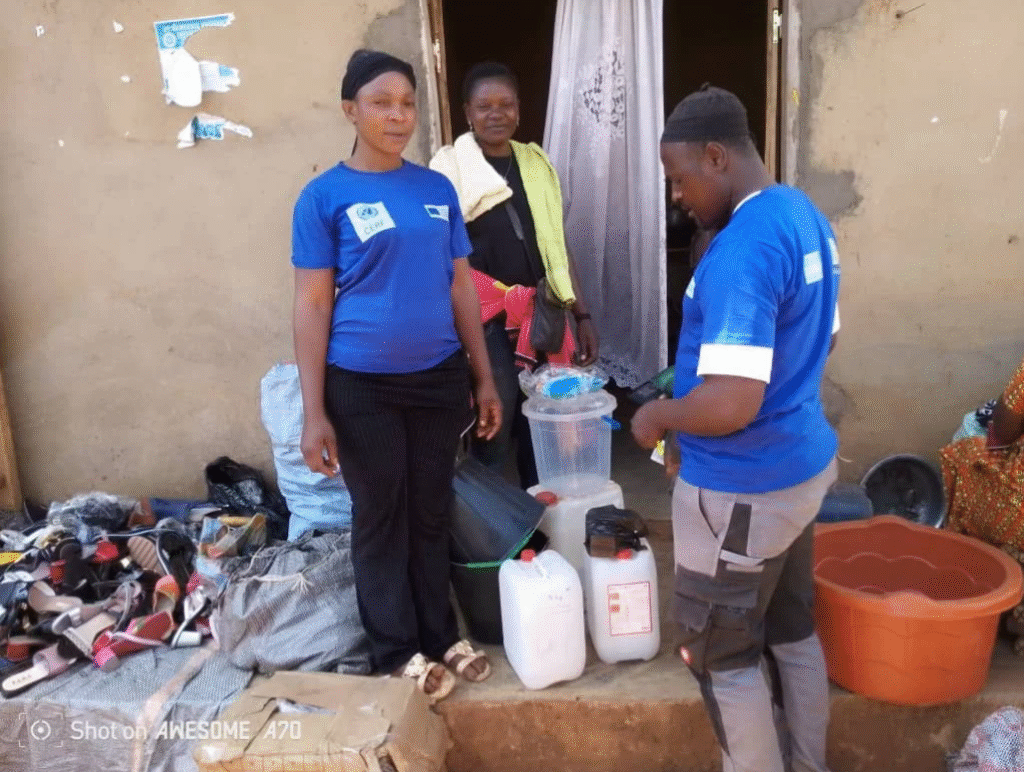
Addressing the water sanitation and hygiene needs of vulnerable children and persons among displaced, Returnees and Host population in the Northwest region of Cameroon.
Oku, Boyo, and Ngo-ketunjia
water, sanitation and hygiene (WASH)
Returnees and Host population in the NWR of Cameroon
Sponsors and Implementing Partners
This project is made possible through the generous funding of CERF and the technical expertise of UNICEF. GCR is proud to be the implementing partner, working closely with local authorities, community leaders, and beneficiaries to ensure the project’s success.
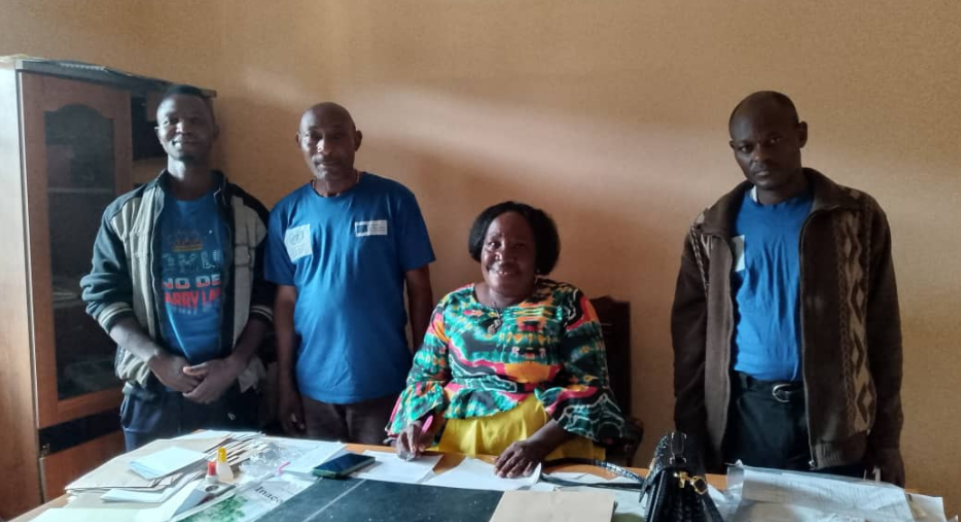
Project Overview
Implemented by Global Community Rescue (GCR) in partnership with UNICEF, this project seeks to address the critical water, sanitation, and hygiene (WASH) needs of displaced returnees, host populations, and vulnerable children in the Northwest Region of Cameroon.
Project Components
- Toilet Construction: Building safe and accessible toilets to reduce the risk of water-borne diseases.
- Hygiene and Sanitation Promotion: Conducting awareness-raising activities to promote good hygiene practices, proper use of toilets, and waste management.
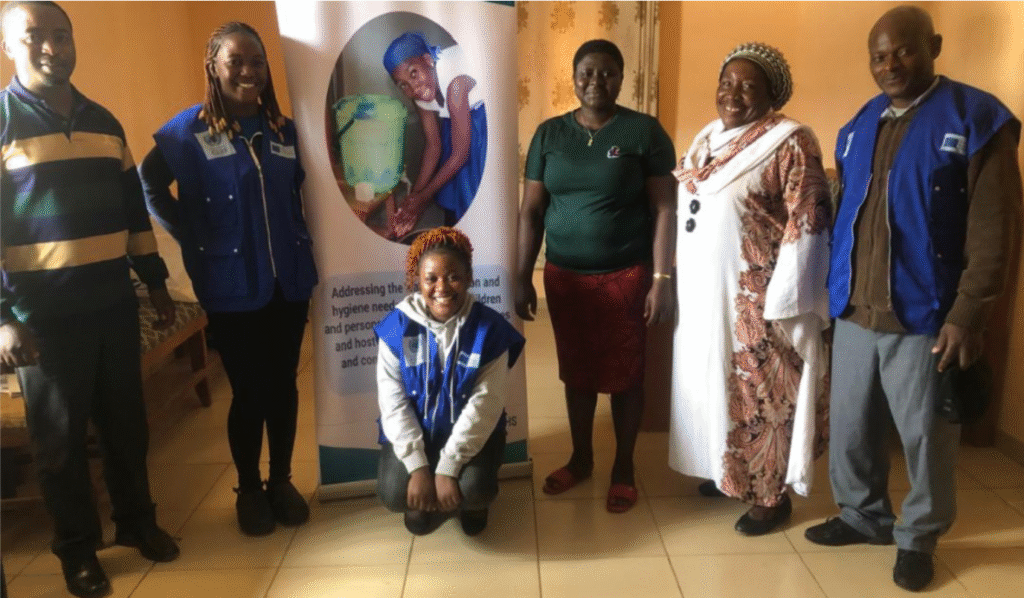
Project Impact
Through this project, GCR and UNICEF aim to:
- Improve access to clean water, sanitation, and hygiene facilities for vulnerable populations.
- Reduce the risk of water-borne diseases and promote good health.
- Enhance the dignity and well-being of displaced returnees, host populations, and vulnerable children.
CERF Projects and Activities Gallery
Toilet Construction
Rehabilitation and Construction of Water Points
In this context, Global Communities Rescue (GCR) is committed to leveraging CERF funding to support UNICEF’s WASH initiatives. With the focus to promoting access to clean water, sanitation, and hygiene facilities, particularly in emergency and crisis situations.
The challenges of Lack of Water in school and communities such as Babessi, Baba I, Njinikom, Oku and other hard to reach areas are many.
Inadequate water intake by children has lead to dehydration, heat stroke, and other health problems which are disturbing children from this crisis-affected communities.
Insufficient water supply result in school in the Oku, Babessi, Babungo, and Njinikom communities has led to poor sanitation and hygiene practices, increasing the risk of water-borne diseases and causing pupils to become ill.
Many schools in these areas still suffer from a lack of access to clean water, resulting in significant economic burdens, including costs associated with water treatment, transportation, and healthcare
Safe water, brighter future. The availability of water in schools in these communities has; promotes health and hygiene practices, reducing the risk of water-borne diseases.
Through CERF funding, UNICEF and GCR have made it possible for CS Njinikom and others to have access to clean water. The availability of water in some schools in these communities has improved pupils’ focus, attention, and overall academic achievement.
Access to clean water in these schools supports physical activity and sports programs, promoting pupils’ health and well-being
Access to clean water in schools is essential for supporting inclusive education, particularly for pupils with disabilities who may require accessible sanitation facilities.
The availability of water in these primary schools has reduced the rate of GBV as children no longer travel long distances to carry water from unprotected streams. “All thanks to CERF, UNICEF, and GCR, we now enjoy clean and fresh water,” a class one teacher from Catholic School Njinikom Attested.
Challenges and Mitigations
Difficulty in transporting materials
Bad roads made it difficult to transport materials and equipment to the construction site, leading to delays and increased costs. As a mitigation, GCR made use of transportation methods that are suitable for the road conditions, such as motorbikes.
Water filling hole during construction
Water filling hole during construction making it excavation difficult, leading to delays and increased costs of construction and made it difficult to apply plastering, leading to poor quality work and increased costs and stress. As a mitigation, suitable drainage systems are Installed to prevent water accumulation of Water even though water still falls directly in to the holes.
Rain made it difficult to apply plastering
Rain made it difficult to apply plastering, leading to poor quality work and increased costs, and stress. As a mitigation, GCR schedules plastering activities during dry weather to prevent water damage and provide temporary shelter to protect the plastering work from rain, such as the use of leaves of plantain.



The partnership between CERF, UNICEF, and GCR is a critical step towards ensuring that vulnerable populations have access to clean water, sanitation, and hygiene facilities.
By leveraging CERF funding and UNICEF’s and GCR expertise, we can promote sustainable WASH practices and strengthen the resilience of vulnerable children and communities.
Clean hands, healthy home. Safe water for every child
Transforming Lives through WASH; Empowering Vulnerable Communities in Crises
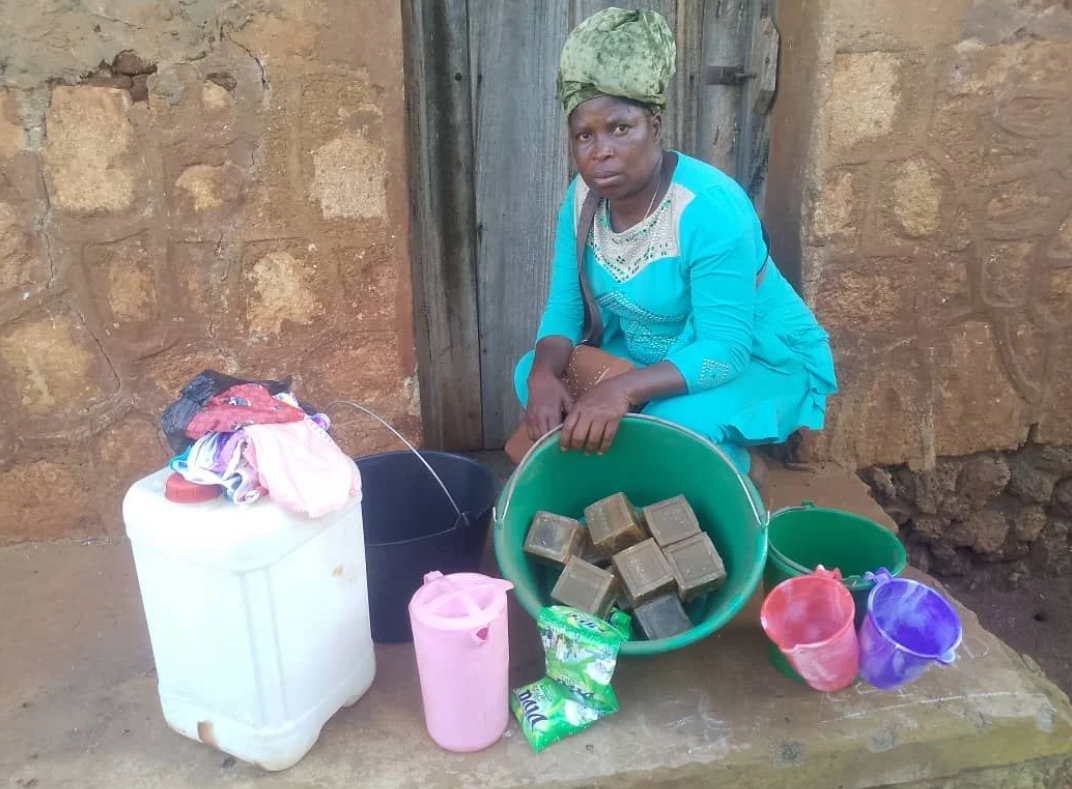
Glory received 51,000 XAF, which she used to purchase soap, toilet paper, sanitary pads, and a new covered bucket for water storage.
The ongoing crisis in the Northwest and Southwest regions of Cameroon has created a devastating humanitarian situation, particularly in rural areas like Ngoketunjia Division. Children and women remain the most affected, facing heightened risks of preventable diseases due to open defecation, limited access to clean water, and poor hygiene practices. Addressing these challenges, UNICEF, with funding from the Central Emergency Response Fund (CERF) and in partnership with Global Community Rescue (GCR), is implementing a critical emergency project titled Addressing the Water, Sanitation, and Hygiene Needs of Vulnerable Children and Persons Among Displaced, Returnees, and Host Populations in the Northwest Region of Cameroon. This initiative is providing lifesaving support to families in Babessi Subdivision. It includes cash assistance to meet urgent WASH needs and community sensitization on hygiene and sanitation. Over 450 beneficiaries have used this support to improve their lives, with some constructing new toilets, others rehabilitating existing facilities, and many acquiring essential items like soap, buckets, and sanitary pads. Alongside financial support, beneficiaries also participated in awareness sessions that empowered them with knowledge about maintaining proper hygiene, safely handling water, and managing menstrual hygiene with dignity. Glory Senemi is a mother of three in Babessi, and to her, this initiative has been a lifeline. “Before receiving cash assistance, my family and I faced enormous challenges. We lacked basic WASH supplies, and my children were constantly falling sick from waterborne diseases,” she explained. Glory received 51,000 XAF, which she used to purchase soap, toilet paper, sanitary pads, and a new covered bucket for water storage. “These items have transformed our hygiene practices. My daughters can now attend school with confidence during their menstrual cycles, and our risk of illness has reduced significantly,” she shared. Glory also emphasized how the sensitization sessions equipped her with essential knowledge. “Learning about proper handwashing, waste disposal, and maintaining a clean environment has empowered us to take charge of our health.”
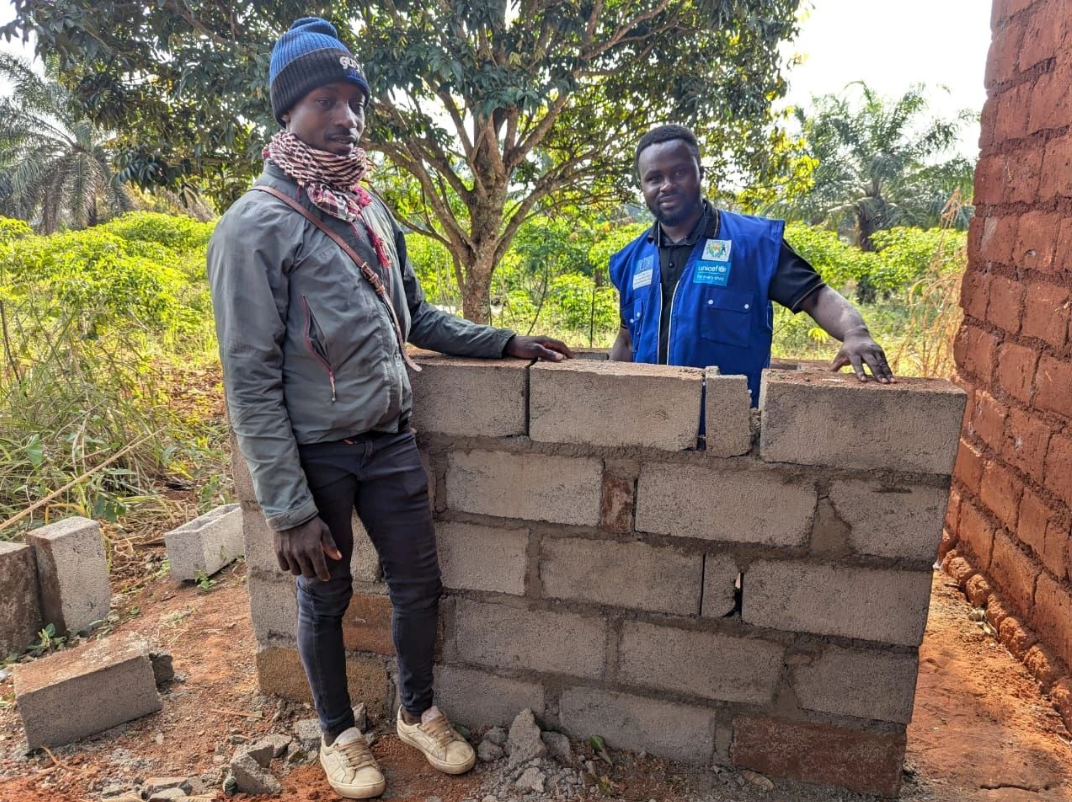
Clifford Lukong, another beneficiary, used his cash transfer of 51,000 XAF to construct a toilet for his family
For many families, the lack of sanitation facilities has been a long-standing source of hardship and indignity. Clifford Lukong, another beneficiary, used his cash transfer of 51,000 XAF to construct a toilet for his family. “We didn’t have a toilet and often had to defecate in the bush. This made maintaining hygiene and sanitation a constant struggle,” he explained. The new toilet has profoundly improved their lives. “My children can now use a safe and clean facility. We no longer face the indignity and health risks of open defecation. This has brought us relief and a renewed sense of dignity,” Clifford shared. Clifford also highlighted the value of the hygiene promotion sessions, which taught his family crucial practices like regular handwashing with soap and proper waste disposal. “We are healthier now, and the training has completely changed our understanding of hygiene and sanitation,” he said. While the project has brought much-needed relief to many families, some challenges remain. Hasan Sani, a resident of Babessi, received 30,600 XAF to purchase essential WASH items, including soap, buckets, and toilet tissue. This assistance significantly improved his family’s hygiene practices. However, Hasan’s family still lacks a toilet, exposing them to ongoing health risks. “We are deeply grateful for the support we’ve received, but the absence of sanitation facilities remains a pressing issue. We appeal for additional help to construct toilets and further improve our living conditions,” he urged. Hasan’s story underscores the need for continued investment in WASH infrastructure in vulnerable communities.
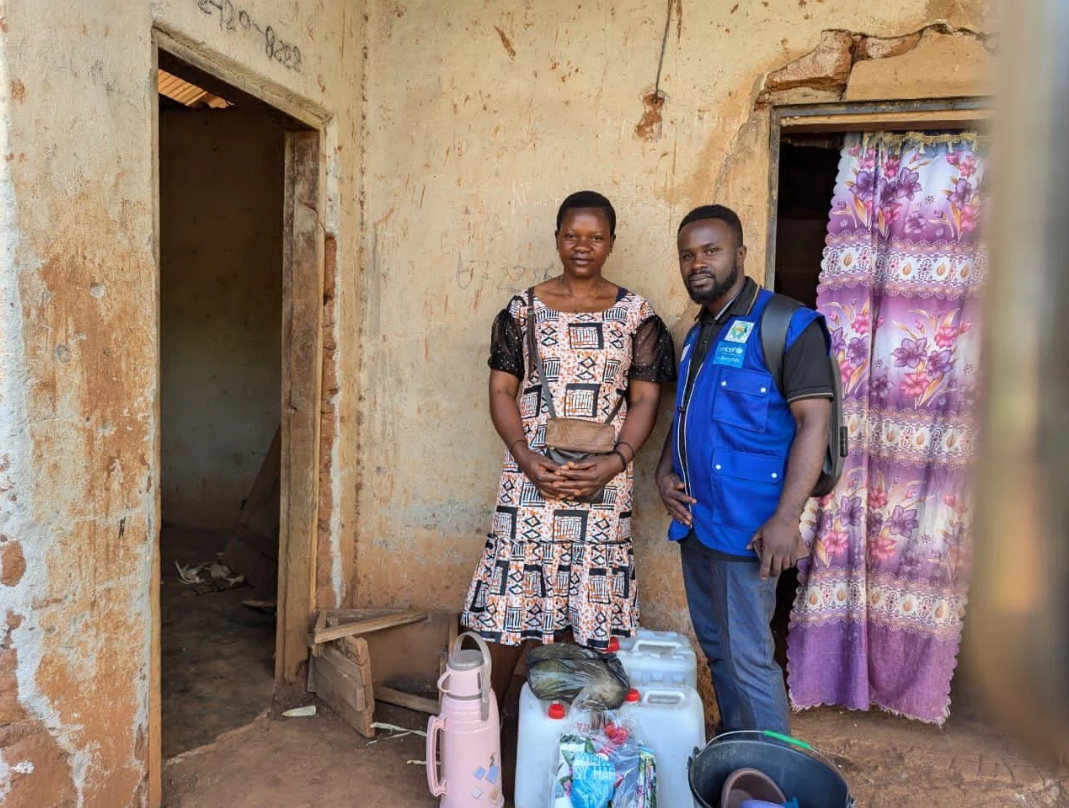
Christina Senkoh, who lives in Baba I community, used her cash transfer of 50,600 XAF to purchase a WASH kit
For young mothers like Christina Senkoh, the project has brought hope and stability. Christina, who lives in Baba I community, used her cash transfer of 50,600 XAF to purchase a WASH kit. “Before this assistance, maintaining good hygiene was a daily struggle. Now, my family is healthier, and my children are less prone to falling ill,” she shared. Christina expressed her gratitude for the combined financial and educational support. “The hygiene promotion sessions were invaluable. We learned about proper handwashing, safe water handling, and maintaining a clean environment. This knowledge has been transformative for my family.” These testimonies from Babessi Subdivision highlight the profound impact of the CERF-funded WASH project implemented by UNICEF and GCR. By addressing urgent WASH needs, the initiative has brought health, dignity, and hope to families who have faced the brunt of Cameroon’s ongoing crisis. From restoring dignity through sanitation facilities to empowering families with hygiene education, the project is transforming lives. However, as Hasan’s story reveals, significant gaps remain, particularly in providing toilets for all families. Addressing these needs is not just about improving health and sanitation; it is about protecting the most vulnerable children. Children are often the first to suffer the consequences of poor hygiene and sanitation. Unsafe water and open defecation expose them to preventable diseases, malnutrition, and even death. Investing in WASH services is investing in their future, giving them a chance to grow up healthy, confident, and with dignity. UNICEF remains committed to working with partners to ensure that every child has access to clean water, proper sanitation, and hygiene education. Together, we can build a future where no child is left behind.


